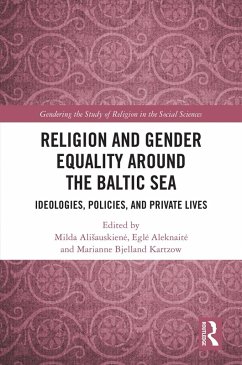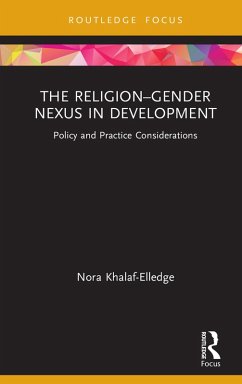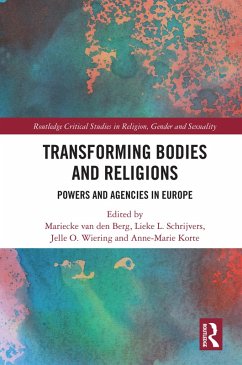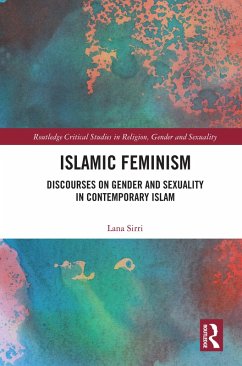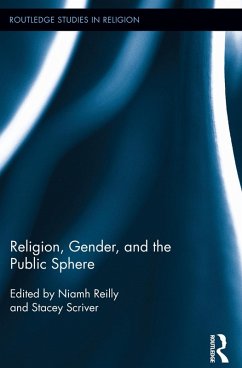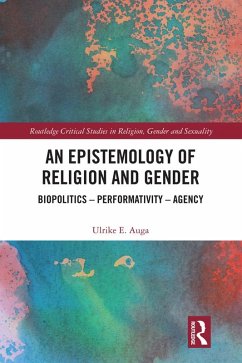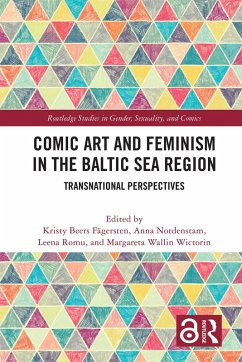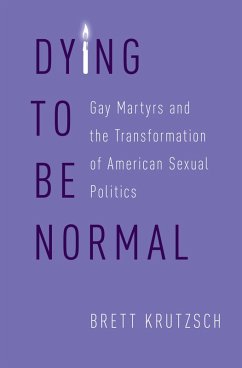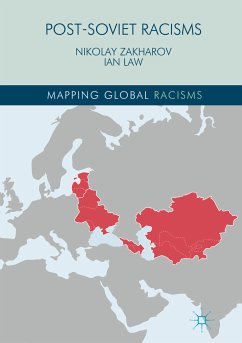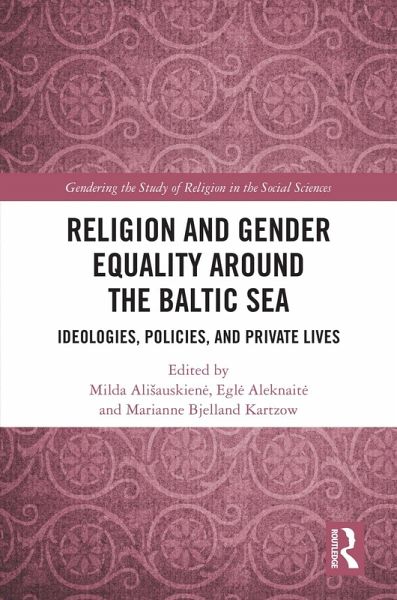
Religion and Gender Equality around the Baltic Sea (eBook, PDF)
Ideologies, Policies, and Private Lives
Redaktion: Alisauskiene, Milda; Bjelland Kartzow, Marianne; Aleknaite, Egle
Versandkostenfrei!
Sofort per Download lieferbar
42,95 €
inkl. MwSt.
Weitere Ausgaben:

PAYBACK Punkte
21 °P sammeln!
This volume aims to rethink the intersections of gender and religion, as well as the secular and religious, in implementing and challenging gender equality at individual, institutional, and societal levels in the regions around the Baltic Sea. Acknowledging the diversity of societies and the significance of socio-historical contexts, the empirical data discussed in this book draw attention to the under-researched region of post-socialist Baltic states. The analyses presented in the chapters are based on fieldwork carried out in Lithuania, Latvia, Estonia, and Norway. This volume includes socio...
This volume aims to rethink the intersections of gender and religion, as well as the secular and religious, in implementing and challenging gender equality at individual, institutional, and societal levels in the regions around the Baltic Sea. Acknowledging the diversity of societies and the significance of socio-historical contexts, the empirical data discussed in this book draw attention to the under-researched region of post-socialist Baltic states. The analyses presented in the chapters are based on fieldwork carried out in Lithuania, Latvia, Estonia, and Norway. This volume includes sociological, anthropological, historical, political science, and theological perspectives and covers five broad research areas: a shifting concept of gender equality and its developments in Baltic and Nordic countries; a diversity of developments within religious groups related to issues of gender equality and the negotiation of competing gender ideologies; inter-religious developments and gender equality; the role of religions in the construction of public discourse on gender equality; and religious socialization, focusing on the promotion of religious gender models through socialization and public education.
Dieser Download kann aus rechtlichen Gründen nur mit Rechnungsadresse in A, B, BG, CY, CZ, D, DK, EW, E, FIN, F, GR, HR, H, IRL, I, LT, L, LR, M, NL, PL, P, R, S, SLO, SK ausgeliefert werden.




